
Coastal sailing vessels
In 1873 an American in Auckland had a shallow-draft scow
built, like those used on the Great Lakes. It
spawned a fleet of sailing scows that became workhorses
for the gum, flax and kauri industries of the north. They
were designed for heavy haulage, taking cattle north from
the stockyards of Auckland and returning with a cargo of
kauri logs, sacks of kauri gum, firewood, flax, sand or
shingle.
With their flat bottoms and retractable centreboards, they
could go a long way up the many shallow tributaries where
the bushmen and bullock teams had accumulated freshly sawn
kauri logs. And they could sit on a river-mouth shoreline
at low tide to be loaded with the beach gravel of shingle.
The Echo
was built in 1905 ran 15,000 trips between Blenheim in the
1920s and 30s, and was one of the scows borrowed by the US
Navy in 1942 to surreptitiously assist coast-watchers in
the Solomon Islands.
'Hookers'
Unkempt 17th century Dutch sailboats used for hook &
line fishing were called hoekers, and this became the
nickname for battered old scows.
This scow would have been about 20m long and 6m wide, and
less than one metre deep in the water when fully loaded.
Jammed up
This hooker was trying to sail nor-nor'east, pushed
by a westerly wind. As it was empty and riding high, the
wind had pushed it eastwards into the North Taranaki
Bight.
The westerly was also sending occasional big rolling waves
from the west, and the helmsman had to turn into the wind
and take the roller bow-on, to stop the lightweight vessel
from capsizing.
He then had to quickly turn the vessel back on course to
stop it from coming to a dead stop, when the rudder would
no longer obey the helm. They would then be "in irons" and
capsized by the next roller.
The Gannet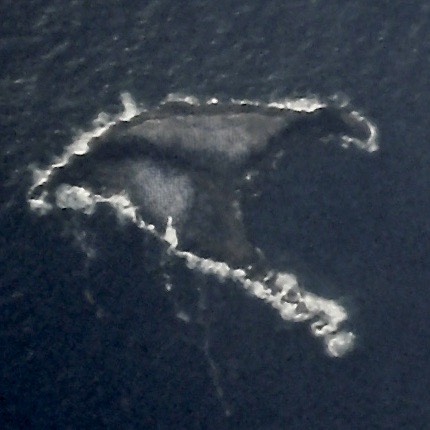
In the starlight, the crew could see the foaming white
breakers hitting Gannet Island, 19 km offshore from
Raglan, plus the thousands of nesting white gannets on it.
And the westerly was threatening to take them onto its
rocks! Then the wind veered further to to the front,
pushing them even more strongly towards the rocks!
|
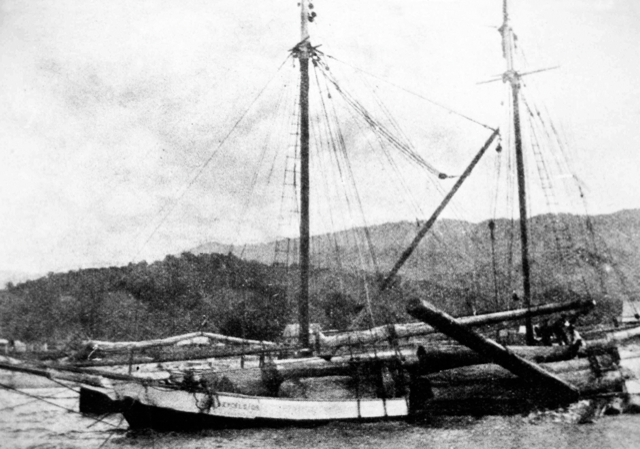
Marshall Nalder
He was born in England in 1856, studied law, and migrated
to New Zealand. A search of Papers
Past tells us that in 1881 he set up as a partner in
a law practice in Kaiapoi. In 1884 he was married in
Nelson to Constance Browning, then in 1896 they sailed on
the ship Renaut to London for a health trip, returning 6
months later. With failing health, he retired from court
cases, moved to Papanui, Chch, and took to writing verse,
finding expression in many newspapers and magazines.
Under the nom de plume of “Pakeha” he published many
humorous verses, while his poetical work of a more serious
nature attracted wide attention. His poem In the
Morning was published in the Sydney Bulletin in
1900.
In 1901 he was appointed Librarian for the Canterbury Law
Society, and in August 1906, with his ill health taking a
serious turn, he was honored by being appointed a Justice
of the Peace, before dying 4 months later.
School Projects
A class project based on In the Morning could
include local history, reading poetry, singing, music,
mathematics (volumes, angles), science (principle of
Archimedes, meteorology, testing forces with fans and
model boats), practical sailing, and carpentry.
Some teachers in schools near Auckland can take their
classes for a voyage on the Ted
Ashby. In many other towns, there are sailing clubs
where children can sail 2 metre long Optimist class sail
boats with flat bottoms and centerboards.
Stefan Clist
Stefan's
life
Gráinneog
 A
gráinneog is a gaelic hedgehog, and also a 4-piece band on
Waiheke Island. A
gráinneog is a gaelic hedgehog, and also a 4-piece band on
Waiheke Island.
They enjoy life there playing traditional folk music that
includes a wide range of songs that tell stories of
sailors, soldiers and their sweethearts, whalers, gold
diggers and dance hall tarts. They also play fiddle tunes
for events, and pub singalongs to fill a dance floor.
Learn more here.
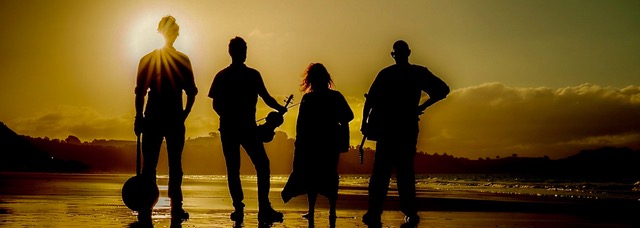
Related songs
Auckland to the
Bluff
Righting the
Ronga
Ngahuru's Lament
Tofa My Feleni
|
|



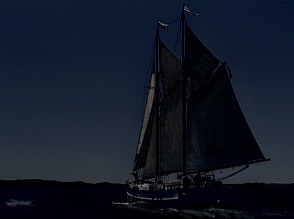
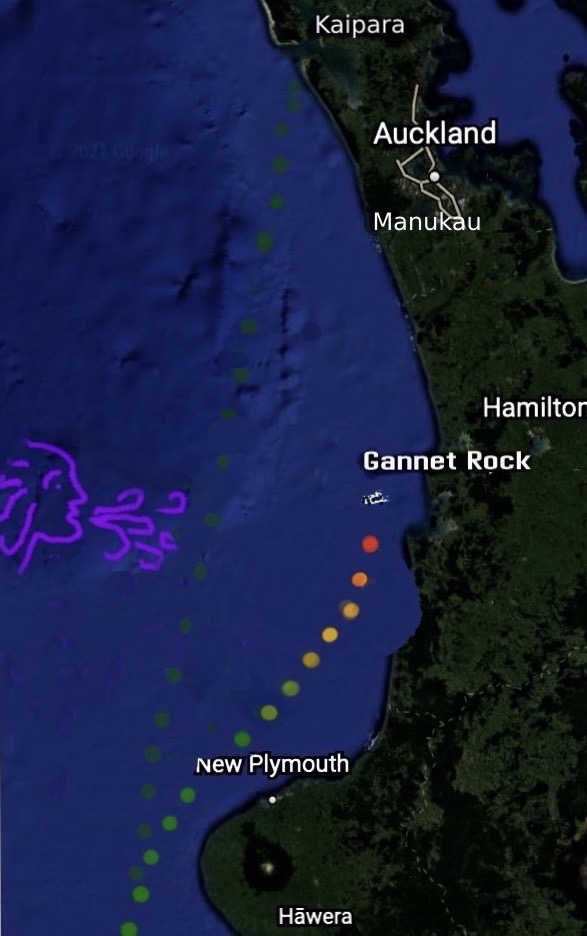
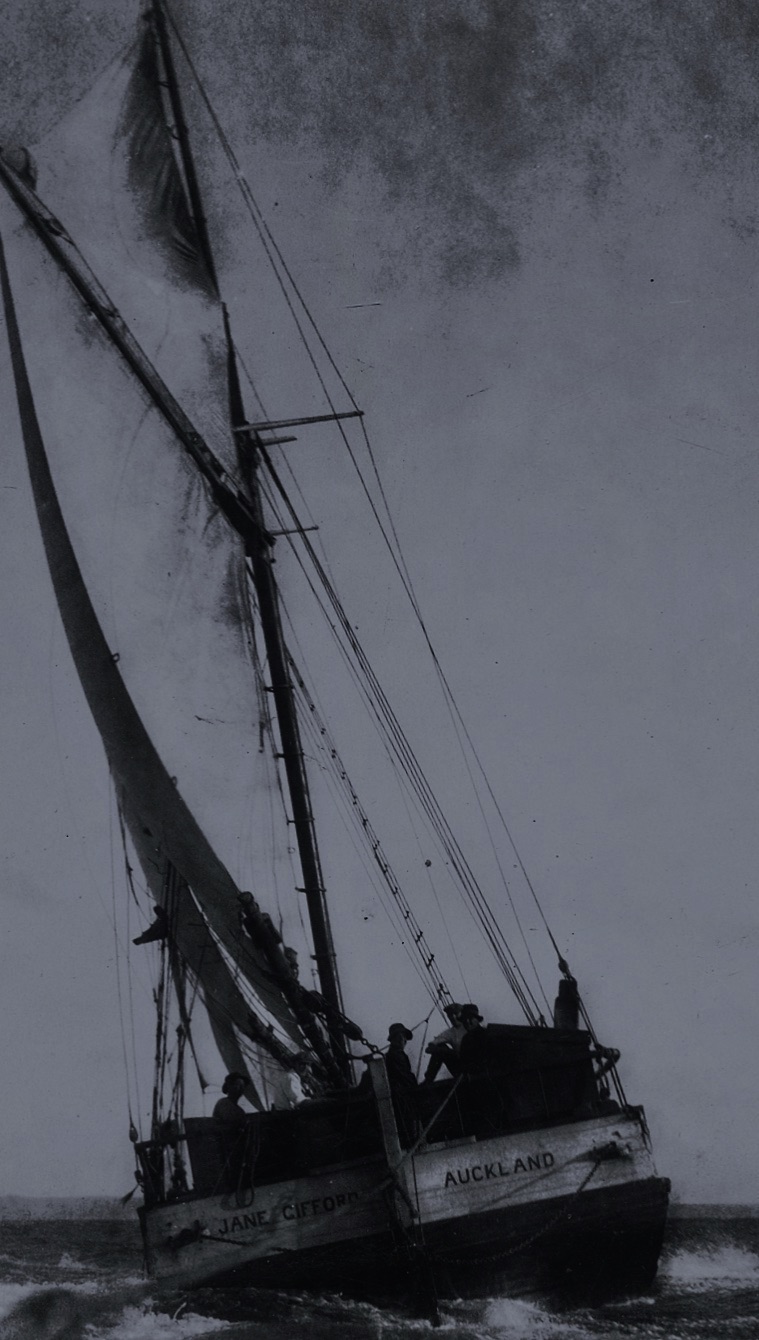
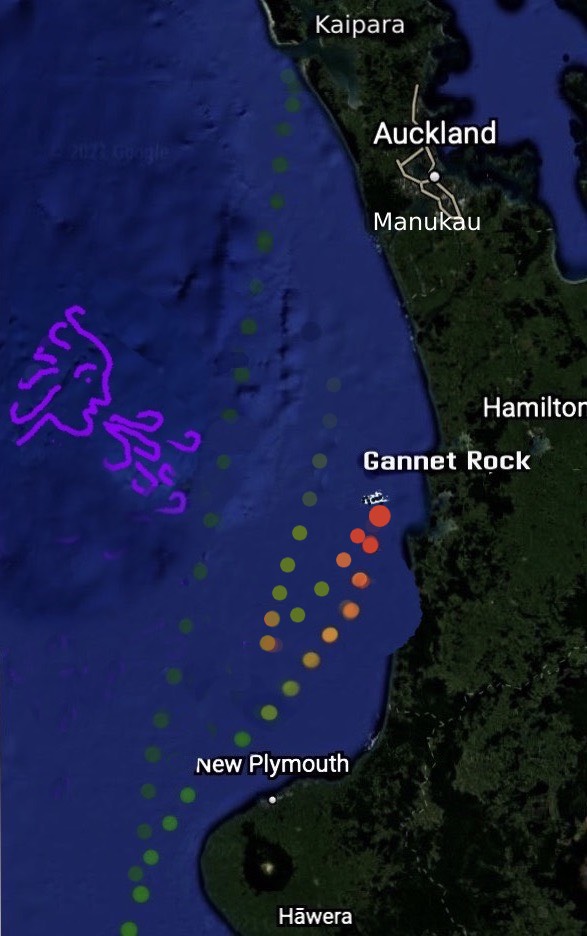

 A
gráinneog is a gaelic hedgehog, and also a 4-piece band on
Waiheke Island.
A
gráinneog is a gaelic hedgehog, and also a 4-piece band on
Waiheke Island.